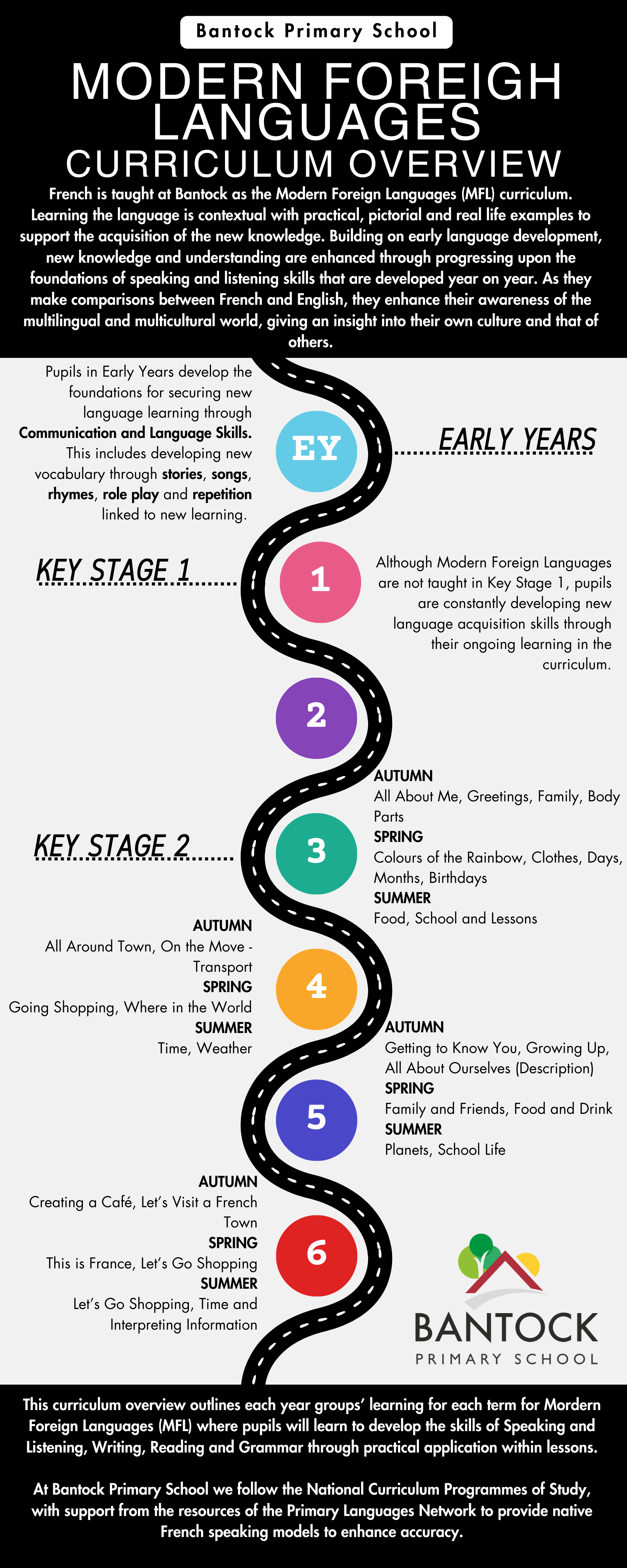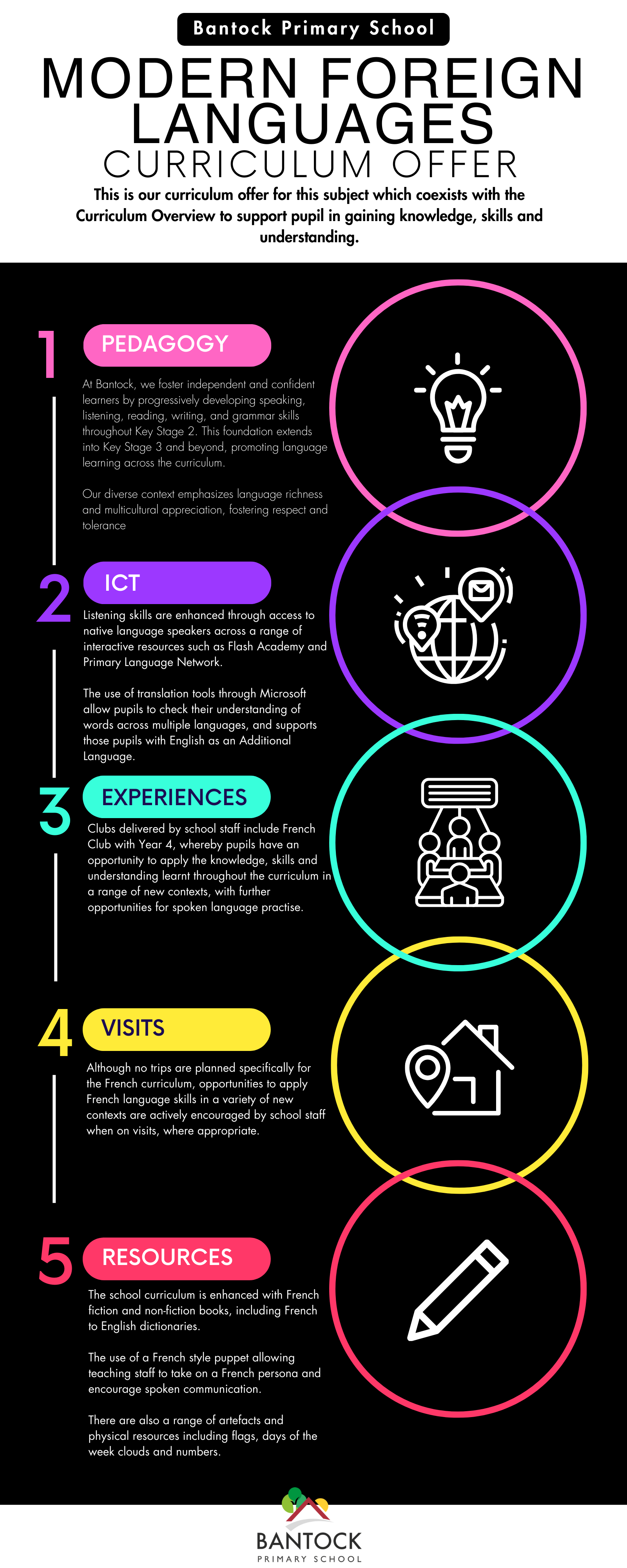SHINE in Modern Foreign Languages
SUCCEED
Pupils at Bantock will be able to confidently utilise the essential components of MFL through challenging yet achievable goals.
HAPPY
A culture of enjoyment in an immersive learning experience of MFL is developed so that pupils are happy to participate in learning.
INSPIRE
An engaging delivery of varied and creative lessons serves to foster pupil’s curiosity and provide them with a firm foundation for lifelong language learning.
NURTURE
At Bantock pupils with work collaboratively and diversity is celebrated to show how language learning can develop new opportunities.
EDUCATE
Bantock Primary School support pupils so that they can become independent and confident language learners, who are encouraged to thrive and achievements are celebrated.


Downloads